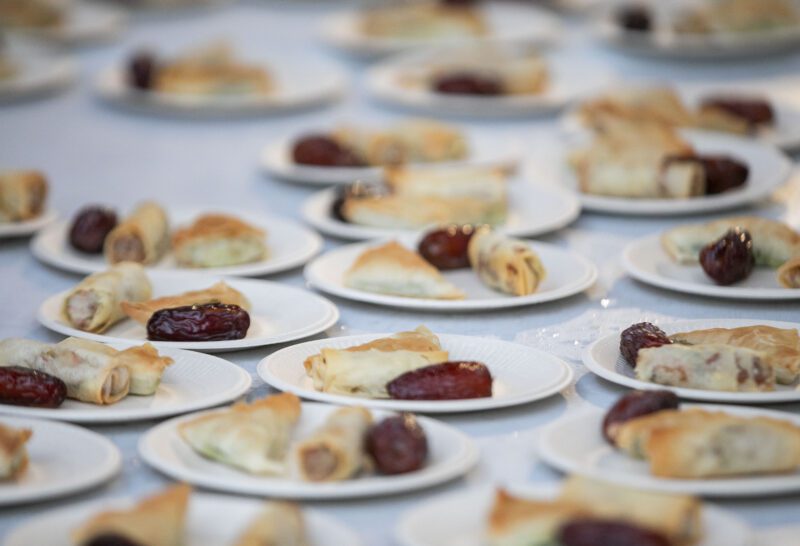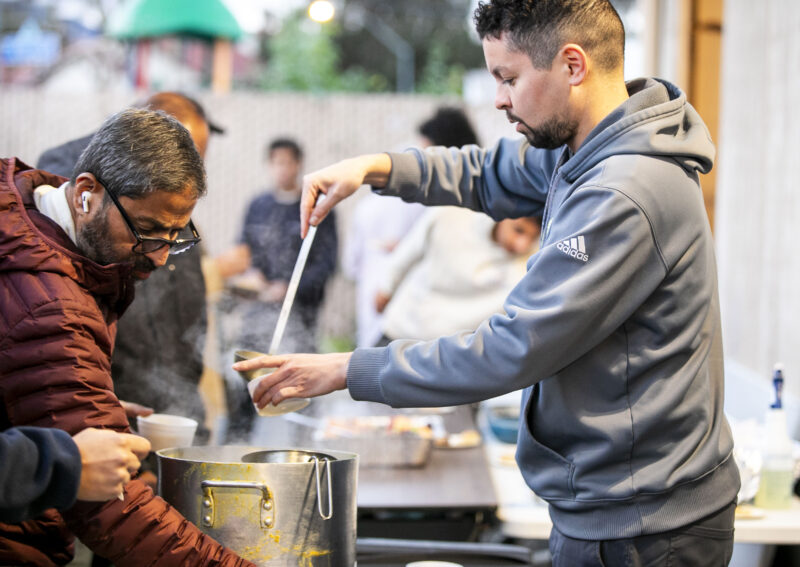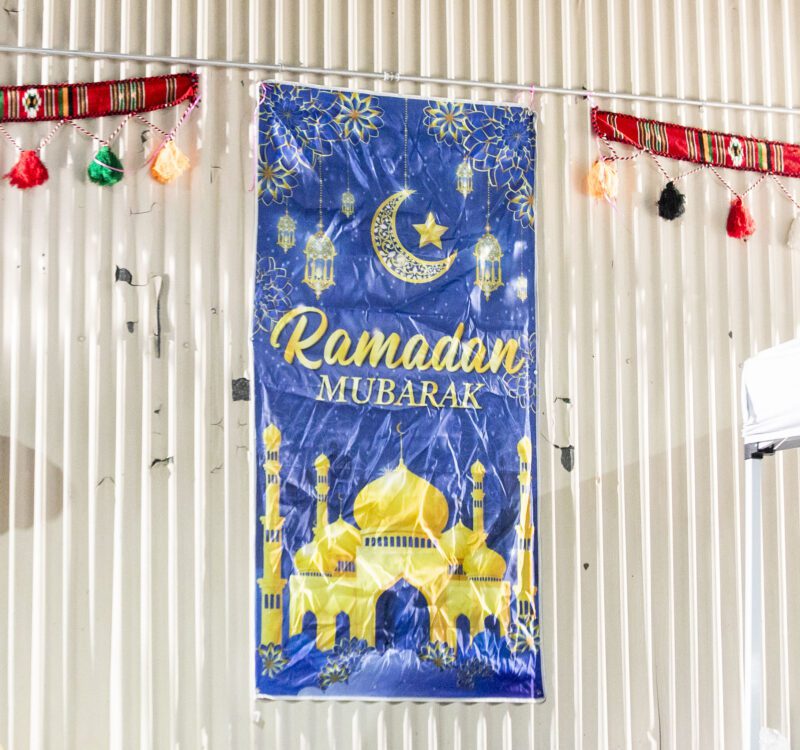Rain or shine, from dawn to sunset, Muslims are commemorating the start of Ramadan around the world.
This is the case in Santa Clarita, where a sporadic downpour on Sunday didn’t stop local Muslims from gathering at Al-Umma Center of Santa Clarita for “iftar,” or the meals eaten throughout Ramadan to mark the end of the daily fasting period.
Ramadan, the holy and ninth month of the Hijri calendar, or the Islamic lunar calendar, entails abstaining from food and water throughout the day.
By starting the fast with the “Fajr” prayer and concluding it with the “Maghrib” prayer, Santa Clarita Muslims participate in nearly 13 hours of fasting — a requirement of one of The Five Pillars, or core requirements, of Islam.

This year, Ramadan is 30 days, which is decided due to the initial sighting of the crescent moon.
As residents greeted one another, prayed and waited to have a warm meal, as they were bundled up in the cold, they also shared the personal significance of fasting to them.
“I feel like something that people don’t talk about enough is how cleansing Ramadan is in a spiritual sense, and in a physical sense, I actually do feel so much better. It makes you understand why we fast for this long and for this time period,” Shahd Mahmoud said. “There are also so many health benefits when you fast and you give your body a chance to rejuvenate and break down the foods and digest.”

According to Mahmoud, fasting can seem intimidating, but the difficulties are often forgotten once one is immersed in one’s day.
“You really don’t feel it. If you are going about your day, doing your thing, it goes by really quickly. I actually don’t even notice if I’m thirsty or hungry, and before I know it, the day is over,” Mahmoud said. “The hardest part about fasting is maybe the last couple of minutes — or an hour before, leading up to it. Also studying when you’re fasting is a little hard, but it’s OK.”
Siblings Amira and Justice Buckly discussed the transformative nature of Ramadan, explaining how fleeting desire can be, as well as how nourishing fasting is for the soul.

“As I’ve gotten older, I understand it more … I now realize that fasting is about being disciplined in a spiritual way, where desires can exist in the moment,” Amira said. “Desires are ephemeral, which means they only exist in the time being. So, I think we fast because it’s spiritual, and it’s a very healing and forgiving thing to do. It’s honestly about trying to be a better person in all aspects: being more patient, more virtuous, more kind, more giving.”
Justice further discussed that food is not the only element that can nourish a person, challenging the notion, or misconception, that fasting can deplete one’s energy.
“We fast to remind ourselves of how short-lived the pleasures of this world are. Anything that reminds you of how privileged you are in this life can’t be a waste of time. You can go your whole life being unrecognized in your own privilege and the life that you live, and never challenge yourself, never push yourself to step outside of your comfort zone,” Justice said. “Energy doesn’t just come from food. It comes from the soul, from your spirit. It’s the proper mindset and the right reasons for doing things that can keep you energized.”

Ali El-Arabi discussed the discipline that Ramadan not only takes, but also teaches, during its observance.
“This is a month in which the Quran, our holy text, was revealed to our Prophet Muhammed, so it’s a month that culminates and represents a lot of discipline, reflection and introspection,” El-Arabi said. “It’s also a time to gather with the community and a reminder for you to know what the important things in this world are: relationships, your faith, and to disconnect from material things that maybe aren’t as important in this lifetime.”
El-Arabi encourages anyone who is interested in learning or participating in Ramadan to try fasting for a day.
“If you know a Muslim friend or colleague, maybe try fasting a day with them and asking them a little bit more about their routine during the month of Ramadan, and maybe you’ll gain some of the benefits, too,” El-Arabi said. “It doesn’t necessarily need to be a religious thing for folks who aren’t Muslim, but it could be a way to learn and kind of experience some of the day-to-day that the Islamic community experiences.”










